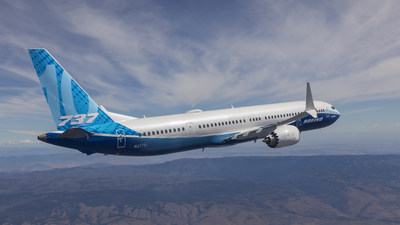Source: Boeing
- Engineering Center joins Boeing’s global network of 15 advanced technology development sites
- Boeing and State of São Paulo sign Memorandum of Understanding for Technological Cooperation
- Boeing and Unicamp extend partnership that maps inputs for sustainable aviation fuel production in Brazil
- Launching Boeing internship program in Brazil in 2024
Boeing announced the opening of its Engineering and Technology Center in Brazil, one of 15 Boeing engineering sites around the world that develop advanced technology to drive aerospace innovation. Based in São José dos Campos (SP) where the company began operations in 2014, the engineering center is an expansion of Boeing’s strategic investments in Brazil, where it employs about 500 engineers supporting current and future programs.
“Boeing’s longstanding partnership with Brazil dates back more than 90 years, and during that time, we have collaborated with the Brazilian aerospace industry and community to tap into the incredible technical abilities and problem-solving skills of Brazilian engineers,” said Lynne Hopper, vice president of Boeing Engineering, Strategy and Operations. “Their expertise strengthens our commitment to engineering excellence and positions us to tackle the next generation of challenges in our industry.”
At an event with employees and key stakeholders, Boeing shared several new strategic investments in the country. Among them, Boeing signed a Memorandum of Understanding (MOU) with the state of São Paulo focused on aerospace technological development including:
- Support for education focused on science, technology, engineering, and mathematics (STEM)
- Promoting a joint agenda of industrialization and innovation
- Enhancing and strengthening the talent pipeline throughout Brazil’s aerospace ecosystem, with an emphasis on increasing diversity
“São Paulo has all the conditions to strengthen aerospace technological development, an important sector that drives the economy of the state. With this MOU, we aim to generate more jobs and income for our state, which is one of the main purposes of the partnership with the private sector, a directive of Governor Tarcísio de Freitas,” says Jorge Lima, Secretary of Economic Development of the State of São Paulo.
With the State University of Campinas (Unicamp), Boeing announced funding to extend their sustainability partnership to develop the third phase of the SAFMaps database to understand the feasibility of the most promising inputs for SAF production in specific areas in Brazil.
“Supported by Boeing, the development of SAFMaps as an innovative web platform lead by Unicamp is focused on helping accelerate sustainable aviation fuels (SAF) production in Brazil. The project, led by the university, currently includes 13 Brazilian states with the greatest potential for biomass production. It also integrates essential information about potential raw materials, aligning with international regulations aimed at reducing greenhouse-gas emissions with the goal of achieving even more sustainable aviation,” said Arnaldo Walter, the Mechanical Engineering professor who leads the project at Unicamp.
Boeing also announced the company’s first internship program in Brazil for students in their final year of engineering studies. Interns will apply knowledge through projects in a global and multicultural environment with mentoring from experienced professionals. The initiative is aligned with the company’s global strategy to contribute to engineering excellence in countries where it operates.
“We want to offer the best internship program in Brazil for students who want to build a solid and prominent career in the aerospace industry. Brazil has a rich aviation history, with universities that are reference points in the engineering sector,” said Humberto Pereira, director of the Boeing Engineering and Technology Center.
For years Boeing has actively collaborated to strengthen Brazil’s aerospace ecosystem in various areas including:
- Secured more than 30 invention disclosures and patent applications since its establishment in the country in 2012
- Investing more than $5 million dollars in partnerships with institutions focused on STEM education, impacting five million students and training thousands of teachers
- In the area of sustainability, working for more than a decade in collaboration with universities, public institutions and non-governmental organizations to enable decarbonization of the aerospace sector
- Focusing especially on SAF and recognizing the pioneering role and expertise of the country in biofuels
- Investing $2 million dollars in initiatives that maximize social, economic, and environmental benefits for communities involved in development of raw materials for SAF
- Working alongside National Civil Aviation Agency (ANAC) and Department of Airspace Control (DECEA) on operational safety projects
“Our investments in Brazil are extensive and reflect the fact that Boeing considers the country a strategic partner in solving some of the biggest challenges in the global aerospace industry,” said Landon Loomis, Boeing president for Latin America and the Caribbean and vice president of Global Policy. “By expanding our collaboration in Brazil, the country also can play a larger role in meeting global demand for commercial airplanes valued at $8 trillion over the next 20 years.”

